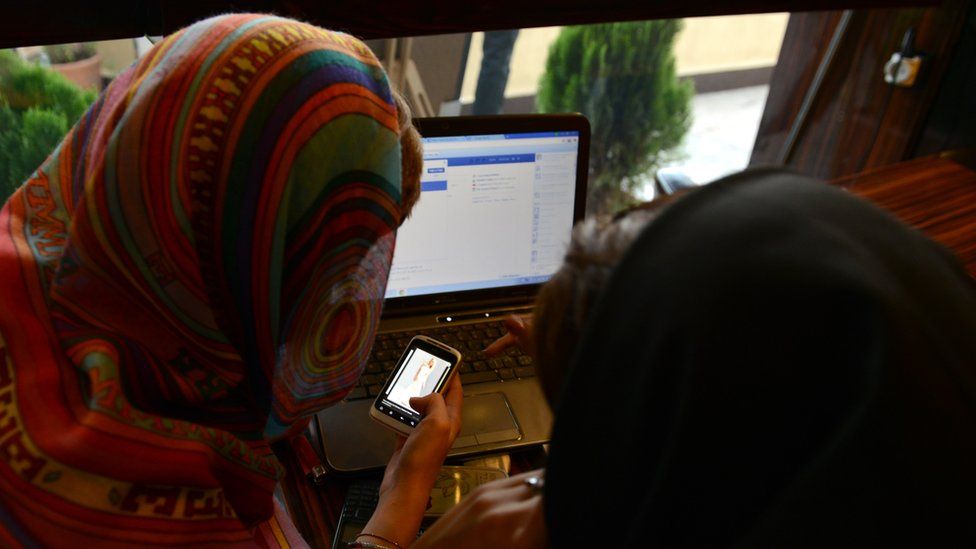Police in Iran have arrested 17 people over a series of viral street prank videos posted on Instagram.
The pranksters recorded themselves faking murders and throwing cake at escalator riders, all in front of shocked members of the public.
Police said the influencers “sowed panic” to boost their follower counts.
Iranian authorities maintain tight control over the internet and the arrests come as part of a wider police crackdown on social media use.
One secretly filmed video showed a prankster chastising his wife for texting a heart emoji to someone before he pretended to decapitate her, all while a horrified taxi passenger watched on.
The victim of another recorded stunt was riding on an escalator when he was smeared in the face with a cream pie, before chasing the pranksters and angrily flinging his backpack and shoes after them.
Tehran’s police chief accused the Instagram users of “playing on people’s nerves and the peace and security of the public.” He also said the videos had been filmed without the right permits.
One of the arrested pranksters told Iranian media he had sought permission from his victims before posting the videos online, adding that he had offered them $20 (£15) to compensate for any distress. “I just wanted to make people happy and increase my Instagram followers”, he explained.
BBC Monitoring found that another of the detained apparently admitted his error in an interview from jail. “I should have applied for permits”, he apologised.
Police criticised the social media users for not knowing better. “All 17 of those arrested had received university educations and worked for respected companies.”
It is not clear yet whether the detained suspects have been officially charged, meaning they could still escape prison time.
The arrests come amid a wider crackdown on social media use by Iranian authorities.
On Thursday Tehran police announced the arrest of 94 other people accused of “vandalism and showing aggression” on social media.
In one case police said they had arrested 16 people for promoting “emerging and abnormal cultures” online, adding that their accounts had now been shut down.
You might also be interested in:
This video can not be played
To play this video you need to enable JavaScript in your browser.




























